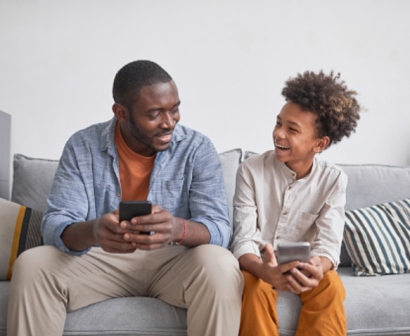Breaking the Pain Cycle
We know that the brain and body are connected.
We know that physical symptoms can affect emotions and thinking. If you have a headache, it is hard to study or work. If your stomach hurts, it may be hard to eat. If you feel dizzy, it is difficult to engage in sports. We don't often realize that our thoughts and emotions can physically impact our bodies. This can cause a pain cycle that creates a loop between anxiety and pain.
The key is learning how to externalize the anxiety and pain (from the neurofeedback loop, aka "Sticky Neural Loop") for teens to confront it and gain back a "say" in their brains and bodies. Youth in pain can feel powerless and helpless, leading to an additional loop between parent and child, where the parent also begins to feel that powerlessness. In this state of parallel helplessness, the pain and anxiety both grow.
CHYP’s Parent Programs
We are here to show you and your child that there are options out there – not only to help reduce pain, but to increase daily functioning for your teen.
- Educational Webinar Series: Interactive Q&A webinars with experts on topics related to chronic pain from childhood to young adulthood. Past webinars are available on CHYP’s YouTube channel.
- Parent CHYPchat: Monthly open Zoom meetings for parents of youth with chronic pain, providing discussion and community with other parents facing similar challenges. This occurs on the first Friday of the month from 1-2pm PT.
- Parent Creating Bonds: Small groups are offered for parents to meet weekly for peer support, and each group is limited to 8 participants to encourage thoughtful discussion. This is an 8-week program.
- Parenting Blog: Weekly distributed information on a variety of educational topics from professionals.
- Resource Library: A library of resources is available with materials to assist with creative healing.
Testimonials
The benefit of being part of this group is that the hour and a half each week was truly a time to lessen the stress of taking care of a child with chronic pain, with people who understood what it was like. We didn't have to explain anything. No one was surprised by what anyone had to say or unwilling to listen. And we got to know each other, which made it easier to open up and delve deeper into issues associated with having children with chronic pain. By the end, we were comfortable sharing things that are difficult to share in a larger group, when there is always someone new. And we all wanted the meetings to go on!
So many ideas really helped on topics especially self-care, meditation, being grateful, having self-compassion, looking for the strengths in my child and in me and practical parenting advice like you can change your reaction to an issue if not the issue itself, validate first then suggest or ask for compliance or take baby steps. And there was so much I learned from the moment of being together with others through the empathy we shared.

